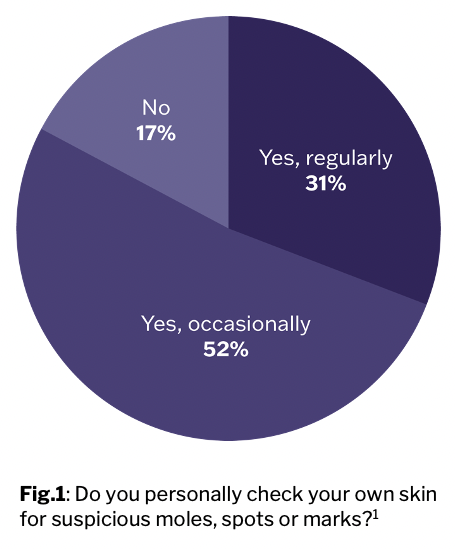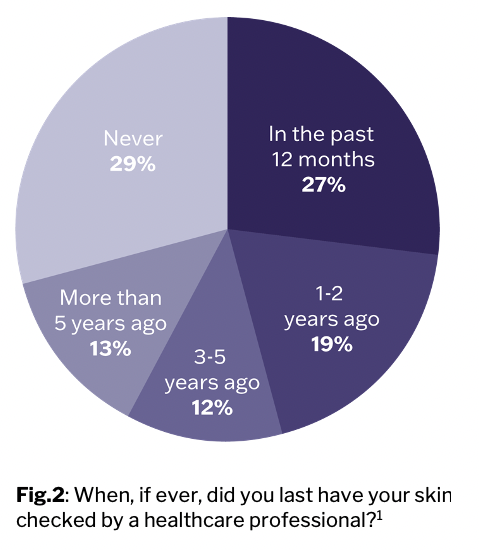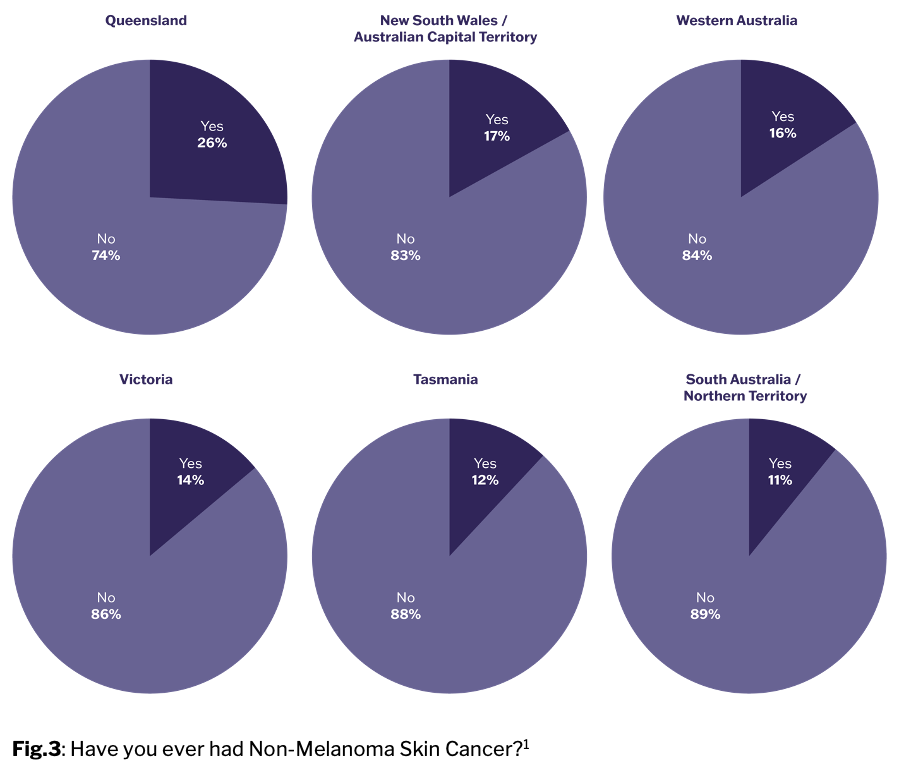March 1, 2023 - PRLog -- While Australians are good at looking for changes in their own skin, over 50% of Australians have not had their skin checked by a health professional within the last two years, and three in 10 have never had a skin check, according to new research released by OncoBeta.1
OncoBeta® GmbH, a global medical device company specialising in innovative therapies for non-melanoma skin cancers (NMSCs), recently commissioned OmniPoll to conduct nationwide research into Australians' behaviours and attitudes towards skin cancer checks and treatment outcomes.
Dr Sam Vohra, Medical Director at OncoBeta Australia, says, "With one of the highest incidences of skin cancer in the world, Australia has been responsible for many effective community awareness campaigns warning the public of the risks of the harsh Australian sun and the need to monitor their skin for changes."
"The success of these awareness campaigns is evident in the research, which found that 83% of Australians are checking their own skin for suspicious spots, moles and marks, and 71% have had their skin checked by a health professional. But the issue of apathy remains when it comes to regular skin checks, with 54% of Australians saying they have not had their skin checked by a health professional in the last two years, despite medical guidelines advising yearly checks."
Early detection is key for treating skin cancer. Thankfully, the external location of skin cancer means it's easier to detect than most cancers, both by an individual or a healthcare professional such as a dermatologist. Ignoring a change in the skin or avoiding having it checked and monitored by a health professional means it may grow and/or spread to other parts of the body, or in the worst case it may become life-threatening. Australia has one of the highest skin cancer rates in the world,2 with one Australian dying from melanoma every six hours.3 A skin check can save your life.
The OncoBeta research also found the prevalence of NMSCs varies nationally (see fig.3).
In terms of treatment outcomes, for Australians diagnosed with NMSCs, the successful removal of the lesion understandably ranked the highest, with 97% saying this was extremely or very important. This was followed by 'fast recovery' (90%) and 'quick and easy procedure' (88%). More than three quarters of NMSC patients said a 'painless' procedure was extremely or very important (77%), followed by 'good aesthetic results' (76%) and 'non-invasive' (73%).1
The survey found that 81% of patients were treated surgically or a combination of surgery and non-surgical treatments, however most respondents stated it is extremely or very important for their treatment to be painless, non-invasive and provide good aesthetic results.1
Mainstay treatments for NMSC include surgery, radiotherapy, cryotherapy and now radioisotope therapy, a procedure utilising the Beta emitter radioisotope, rhenium-188 – an advanced radionuclide technology that offers a painless4,6*, non-invasive4,5†, single-session4,6‡ treatment with little to no scarring4,7.
"The application of nuclear medicine in the treatment of many forms of cancers is very effective and becoming increasingly popular" explains Shannon D. Brown III, CEO and Managing Director at OncoBeta. "Rhenium skin cancer therapy is a high-precision application of radiation directly to a skin cancer, avoiding the need for potentially disfiguring surgery and minimising the risk of scarring. For NMSC patients, it offers a non-surgical alternative previously not available and one that is especially suited to difficult locations."
The key takeaway from the research is that Australians need to take action and schedule an annual skin check with a health professional.
"Australians are reportedly adopting many sun-safe behaviours such as wearing sunscreen and hats, staying out of the sun during the hottest part of the day, and checking their skin for changes. But individuals need to use the seasonal change to summer as a cue to get a skin check from a health professional on an annual basis. Just like visiting the dentist, an annual skin check should be part of your overall health regimen," says Dr Vohra.
OncoBeta is currently running The Spot Detective public health campaign encouraging Australians to visit a Spot Detective – their GP, dermatologist, or skin-health specialist – to have their spots assessed and to learn about the various treatments available. The campaign is being rolled out nationally through a social media and digital marketing campaign and includes free skin-check pop-up clinics at various locations. Visit: www.spotdetective.com.au
OncoBeta's research was conducted in November 2022 and surveyed a sample of 1,235 people aged 18 and above. OmniPoll post-weighted the results to the Australian Bureau of Statistics census data reflecting Australian's overall population and providing statistically reliable insights.
For more information on the research or OncoBeta, visit: www.oncobeta.com
About OncoBeta®
OncoBeta®, with its headquarters located in Garching near Munich, Germany, is a privately held medical device company, specializing in the development and commercialization of state-of-the-art, innovative therapies. Since its foundation, OncoBeta has concentrated its efforts on the development, regulatory approval(s) and commercialization of the epidermal radioisotope therapy Rhenium-SCT® (Skin Cancer Therapy), targeting NMSCs. OncoBeta has perfected the customized application and device management system in conformity with all health, safety and environmental protection regulatory standards.
Find out more about the Rhenium-SCT® at www.oncobeta.com
Follow us on social media:
LinkedIn: www.linkedin.com/company/oncobeta-gmbh/
Facebook: www.facebook.com/oncobeta/
Instagram: www.instagram.com/oncobeta_gmbh/
Forward-looking statements
This announcement includes forward-looking statements that involve risks, uncertainties and other factors, many of which are outside of OncoBeta's control, and which could cause actual results to differ materially from the results discussed in the forward-looking statements. Forward-looking statements include statements concerning OncoBeta's plans, objectives, goals, future events, performance and/or other information that is not historical information. All such forward-looking statements are expressly qualified by these cautionary statements and any other cautionary statements which may accompany the forward-looking statements. OncoBeta® undertakes no obligation to publicly update or revise forward-looking statements to reflect subsequent events or circumstances after the date made, except as required by law.
*No reported pain.4,6
†A procedure is considered non-invasive when no break or cut in the skin is created.8
‡Complete tumour regression in 98.5% of lesions treated.9
References
- OmniPoll Survey November 2022.
- SunSmart national position statement. Available at: https://www.cancer.org.au/about-us/policy-and-advocacy/position-statements/sunsmart [Accessed October 2022].
- Melanoma facts. Available at: https://melanoma.org.au/about-melanoma/melanoma-facts/ [Accessed November 2022].
- Castellucci P, et al. Eur J Nucl Med Mol Imaging. 2021;48(5):1511-1521.
- Carrozzo AM, et al. Eur J Dermatol.2013; 23(2) 183–18.
- Cipriani C, et al. J Dermatolog Treat. 2020; Jul 22:1-7.
- Cipriani C, et al. Int J Nucl Med. 2017;114–112.
- Australian Therapeutic Goods Administration. ARTG Public summary 351390.
- Cipriani C, et al. In Therapeutic Nuclear Medicine 2014. RP Baum (Ed), New York: Springer.
Photos: (Click photo to enlarge)



Read Full Story - Latest research shows Australians still not getting annual skin checks with a Health Professional | More news from this source
Press release distribution by PRLog

